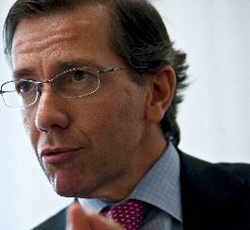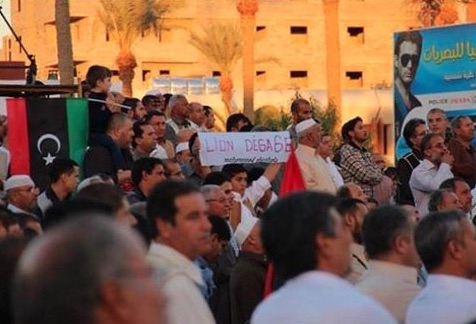By Hadi Fornaji.

Tripoli, 21 November 2014:
Bernardino Leon, the head of UNSMIL, is seeking to hold a second round of political negotiations . . .[restrict]in Ghadames on Monday, 1 December – but widening out the participation. As part of the planning process, he is due in Tobruk for meetings this Monday, moving on the Tripoli the next day.
In a CNN interview earlier this week, Leon said the second phase of what he calls the Ghadames Process would be different from the first, where members of the House of Representatives in Tobruk sat down with those representatives who were boycotting the new parliament.
“We are discussing proposals with both camps to try and recover this political process,” explained Leon, “respecting its essence but introducing some changes so that we can keep working and hopefully find a political solution”.
It is not yet clear what those changes might be.
In the CNN interview, the anchor Becky Anderson, who was pressing Leon over what appeared to be his attempt at the very start of the interview to minimise the danger posed by ISIS, did not pick up on the point.
Since the Ghadames meeting on 29 September , the Supreme Court has ruled that the enabling legislation for the HoR election was invalid – an event that has made the political landscape appear very different.
When taxed by CNN on the implications of the court’s decision, Leon repeated the current international response that the judgement itself was still being “interpreted”. He went on to insist “the problem in Libya is not legal, it is political, so we need a political solution. We need all Libyan stakeholders to find a solution, because if not, the enemy is chaos and it is in this chaos where terrorism groups will grow and become intractable”.

The interview got off to a bad start when Leon was asked if it had come as a surprise to him that ISIS was now present in Libya. He replied: “Yes. Absolutely.” He did, however, immediately go on to say that there were groups in Derna that had “pledged alliance to ISIS. We don’t believe high numbers”. This, he continued “is still something we can manage, but Libya is running out of time”.
Pressed on the terrorist threat, he said that he was not an expert and said that UNSMIL’s mandate was politics not counterterrorism. This has not entirely convinced Libya analysts who claim that UNSMIL and Libya’s western allies are now more concerned about stopping terrorism than in supporting democracy.
As to the encounter with Anderson, it is being viewed by diplomats accredited to Libya as a serious mistake in that Leon had nothing to gain and nothing new to say. Instead, they say, he served himself up to an interviewer with a reputation for tough questioning who seemed intent on drawing out the apparent powerlessness of the international position. [/restrict]








